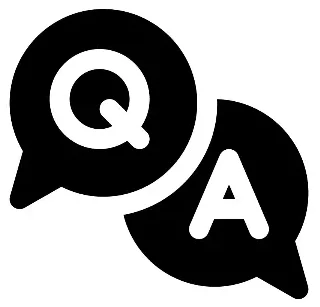sql for data science with r coursera answers week 4
R and Relational Databases
Practice Quiz
1. How can a relational database help R handle memory issues?
- Using a relational database increases memory use in R.Using a relational database with R has no impact on memory.
- Using a relational database with R has no impact on memory.
- Loading all the data from the relational database into a dataframe reduces memory demands.
- Running SQL queries in a relational database reduces memory demands in the R client.
2. Which R function saves a single data structure to a .Rda file?
- readRDS()
- save.image()
- saveRDS()
- save()
3. A dataframe in R is like which of the following relational database concept?
- Database
- Table
- Schema
- Column
4. When mapping data types between R and a database, you should consider converting which of the following to strings?
- Double
- Logical
- Factor
- Date
5. When designing a database and making decisions, which potential issue is not helped by normalization?
- Transaction processing problems
- Data redundancy
- Performance issues
- Lack of security
Graded Quiz: R and Relational Databases
6. Which amongst the following is the simplest way to update individual observations in a dataframe?
- There is no way to update individual observations directly in a dataframe.
- Make the updates in the dataframe and then store the results in a binary format.
- Convert the dataframe into a text file and make the changes there.
- Store the data in a relational database instead and make the updates there.
7. Which R function loads multiple R data structures from a .Rda file?
- load()
- save()
- save.image()
- readRDS()
8. A variable in R is like which of the following relational database concept?
- Column (or attribute)
- Table
- Schema
- Row (or tuple)
9. Which R variable holds the platform numeric limits for your R environment?
- .Computer
- .Precision
- .Numeric
- .Machine
10. What is declarative referential integrity?
- Manages transactions by adhering to the ACID properties.
- Validates data normalization.
- Protects databases from the corruption, destruction, or removal of data.
- Manages dependency relationships between two tables.
Connecting to Databases from R
Practice Quiz
11. Which of the following statements about database packages for R are true? Select two answers.
- DBI-based packages are database server specific.
- The RODBC package can only be used with Microsoft database server products.
- A DBI-based package can be used with many different database servers.
- The RODBC package can be used with many different database servers.
12. Which RJDBC function retrieves the content of the result set in the form of a dataframe?
- fetch
- get_data
- retrieve
13. The ODBC Driver Manager is:
- Database server specific
- Vendor specific
- Platform specific
- Package specific
14. What are the two steps you must complete outside of R before installing the RODBC package? Select two answers.
- List the names of the registered DSNs on your database server.
- Configure the ODBC DSN.
- Install the RODBC package from the CRAN website.
- Install the ODBC driver for your database server.
15. Which RODBC function returns metadata that can help you preserve data integrity when working with database data in R?
- sqlER
- sqlTypeInfo()
- sqlTables()
- sqlColumns()
Graded Quiz: Connecting to Databases from R
16. What are the two categories of relational database access packages in R?
- JDBC
- ISO SQL/CLI
- ODBC
- Database Interface-Based (DBI)
17. What is the first step you must take before using the RJDBC package for R?
- Query the database using a SELECT statement.
- Create a connection object for a database on a remote server.
- Load the RJDBC library.
- Load the DB2 JDBC type 4 driver and create a driver object.
18. Which of the following is one of the two components of ODBC?
- Data sources
- Registered DNS
- ODBC Driver Manager
- ODBC Runtime Environment
19. Which SQL command returns the list of registered DSNs?
- names()
- print()
- registered()
- odbcDataSources()
20. Which RODBC function does NOT help you learn about the schema of your database?
- odbcGetInfo()
- sqlTypeInfo()
- sqlColumns()
- sqlTables()























